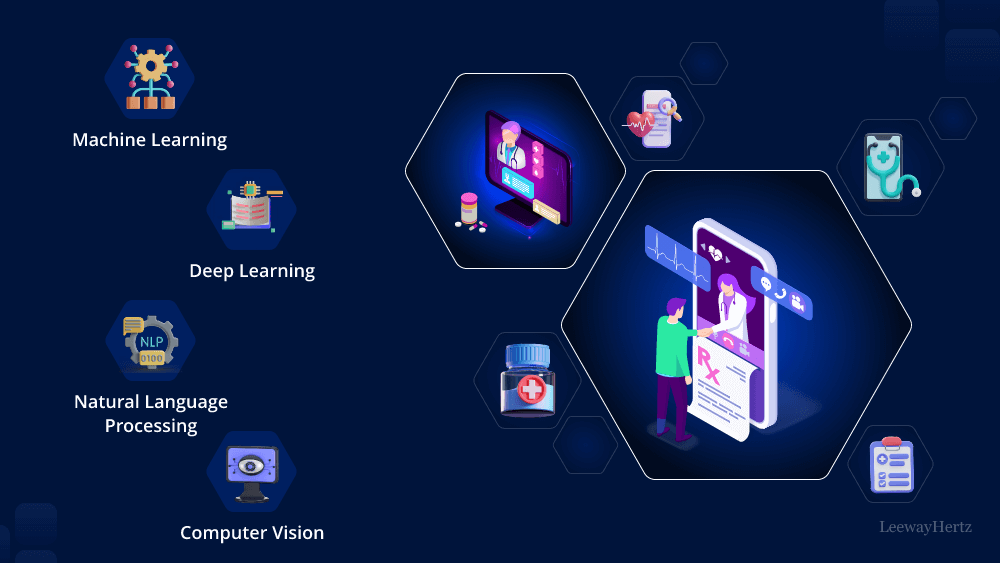Telemedicine’s AI Takeover: Personalized Care or Privacy Nightmare?
(Date: October 26, 2000)
The dawn of the new millennium has brought with it a technological renaissance, and few sectors are experiencing its impact as profoundly as healthcare. Telemedicine, once a futuristic concept, is rapidly transforming how medical services are delivered, promising greater access and convenience. Fueling this evolution is the burgeoning field of Artificial Intelligence (AI), offering the potential for personalized, predictive care. However, this integration raises critical questions about patient privacy and data security, sparking a debate about the delicate balance between innovation and ethical responsibility. This article explores the evolving landscape of telemedicine, the transformative role of AI, and the crucial considerations that must guide its development to ensure a future where technology empowers both patients and providers.
Telemedicine: Reshaping the Healthcare Landscape
Telemedicine, encompassing the use of telecommunications technologies for remote diagnosis, treatment, and patient monitoring, is no longer a niche concept. Driven by advancements in internet connectivity and digital communication tools, telemedicine is breaking down geographical barriers and expanding access to specialists, particularly in underserved rural areas. It empowers patients with chronic conditions to receive consistent monitoring and support within the comfort of their homes, reducing hospital readmissions and improving overall health outcomes. From video conferencing consultations to remote patient monitoring devices, telemedicine is revolutionizing traditional healthcare delivery models, creating a more patient-centric and efficient system.
Within the broader healthcare industry, telemedicine is carving out a significant role. It offers a compelling solution to address the growing demand for healthcare services amidst a shortage of medical professionals. By streamlining administrative processes, reducing travel time for both patients and providers, and optimizing resource allocation, telemedicine contributes to cost-effectiveness within the healthcare system. Furthermore, it empowers individuals to take a more proactive role in managing their health, fostering a culture of preventative care and personalized wellness.
The AI Infusion: Transforming Telemedicine’s Potential
The integration of AI into telemedicine is accelerating this transformation, pushing the boundaries of what’s possible in remote healthcare. AI algorithms can analyze vast amounts of patient data, identifying patterns and insights that can aid in early diagnosis, personalized treatment plans, and predictive health monitoring. Consider the following applications:
- Diagnostic Support: AI-powered image recognition tools can analyze medical images like X-rays and MRIs, assisting radiologists in identifying anomalies and accelerating diagnosis.
- Personalized Treatment: AI algorithms can analyze patient data, including medical history, lifestyle factors, and genetic information, to recommend tailored treatment plans that optimize efficacy and minimize side effects.
- Predictive Analytics: By analyzing patient data trends, AI can predict potential health risks and trigger proactive interventions, preventing serious complications.
- Virtual Assistants: AI-powered chatbots can provide patients with instant answers to basic medical questions, schedule appointments, and offer personalized health recommendations.
- Remote Patient Monitoring: AI algorithms can analyze data from wearable sensors and remote monitoring devices, alerting healthcare providers to potential issues and enabling timely interventions.
These applications are not merely theoretical; they are being actively developed and implemented, demonstrating the tangible impact of AI on telemedicine’s efficacy and reach.
Key Trends and Statistics Shaping the Future
Several key trends are shaping the future of AI-powered telemedicine:
- Increased adoption of wearable technology: The proliferation of smartwatches and fitness trackers is generating a wealth of patient data, providing valuable insights for AI algorithms to analyze and personalize care.
- Growing investment in AI healthcare startups: Venture capital is pouring into companies developing innovative AI-driven telemedicine solutions, signaling the industry’s confidence in its growth potential.
- Focus on data security and privacy: As patient data becomes increasingly digitized, concerns about privacy and security are paramount, driving the development of robust data protection measures.
- Integration with electronic health records (EHRs): Seamless integration between AI platforms and EHR systems is crucial for efficient data sharing and streamlined workflows.
- Regulatory frameworks for AI in healthcare: Governments and regulatory bodies are actively developing frameworks to ensure the responsible and ethical use of AI in healthcare, addressing concerns about bias and transparency.
While precise statistics for the year 2000 are limited due to the nascent stage of the industry, early indicators suggest a significant upward trajectory. Reports indicate a growing number of telehealth consultations and a steady increase in investment in telemedicine technologies. The convergence of these trends points towards a future where AI-powered telemedicine plays a central role in healthcare delivery.
Recent Market News (as of 2000):
- Several telehealth companies are securing funding to expand their services and integrate AI capabilities.
- Pilot programs are underway to test the effectiveness of AI-powered diagnostic tools in remote settings.
- Professional organizations are hosting conferences and workshops to discuss the ethical implications of AI in healthcare.
Telemedicine’s AI Takeover: Personalized Care or Privacy Nightmare? – A Summary
The convergence of telemedicine and AI offers tremendous potential to revolutionize healthcare, providing personalized, accessible, and efficient care. AI’s ability to analyze vast amounts of patient data can lead to earlier diagnoses, more effective treatments, and proactive preventative measures. However, this data-driven approach raises critical ethical considerations. Safeguarding patient privacy and ensuring the responsible use of sensitive information are paramount. Striking the right balance between innovation and data security is crucial for building trust and fostering widespread adoption.
Concerns about data breaches, algorithmic bias, and the potential for misuse of personal information must be addressed proactively. Robust data encryption methods, strict adherence to privacy regulations, and transparent AI algorithms are essential for mitigating these risks. Open dialogue between stakeholders, including patients, healthcare providers, technology developers, and policymakers, is vital to establish ethical guidelines and regulatory frameworks that promote responsible innovation.
Ultimately, the future of AI-powered telemedicine hinges on our ability to harness its transformative potential while safeguarding the fundamental right to privacy. By prioritizing ethical considerations and fostering a culture of responsible data stewardship, we can ensure that this technological revolution empowers both patients and providers, creating a healthcare system that is truly patient-centric, accessible, and equitable.
















